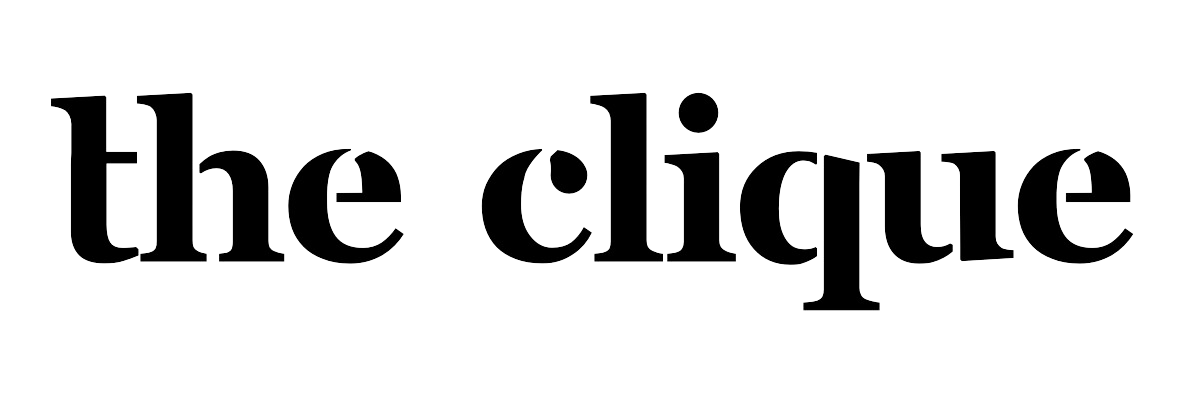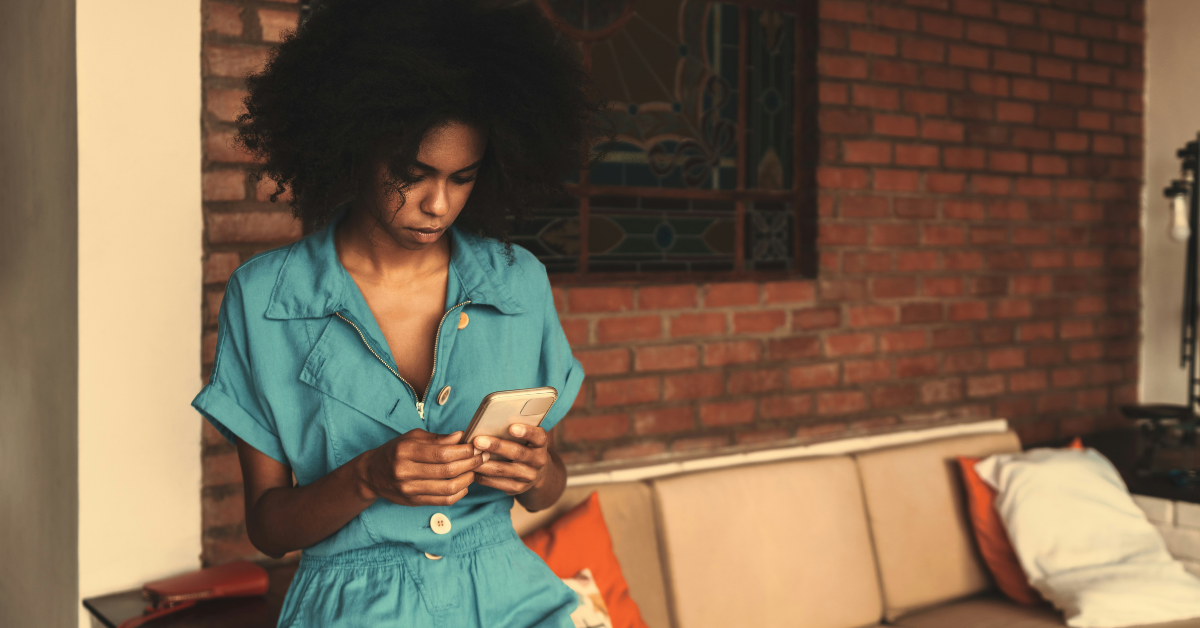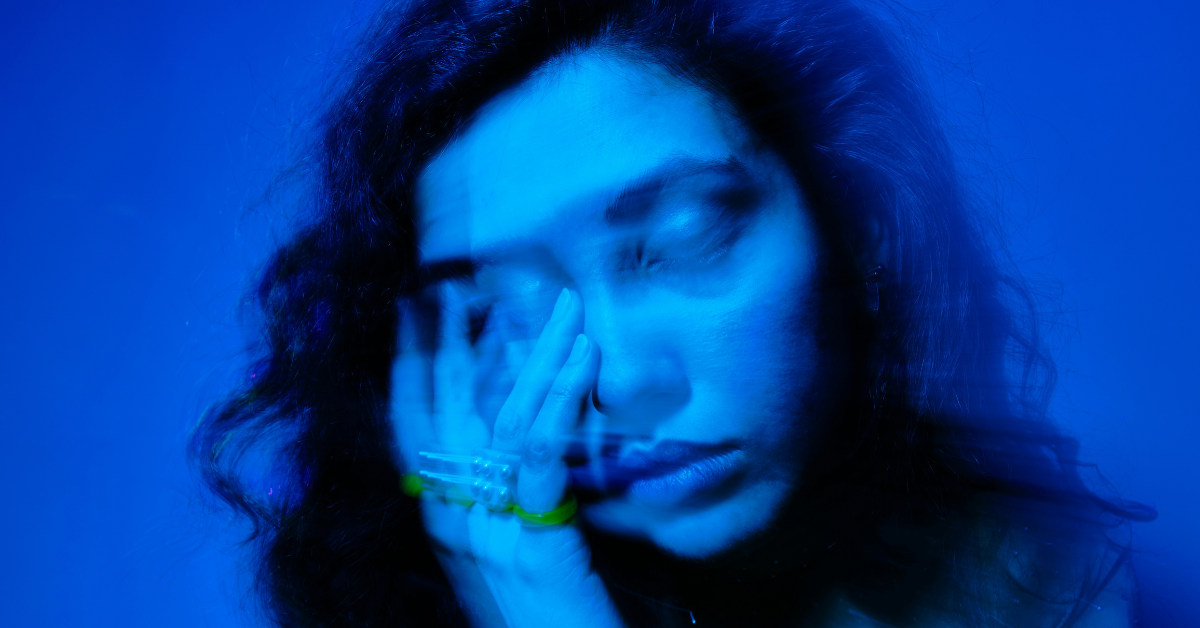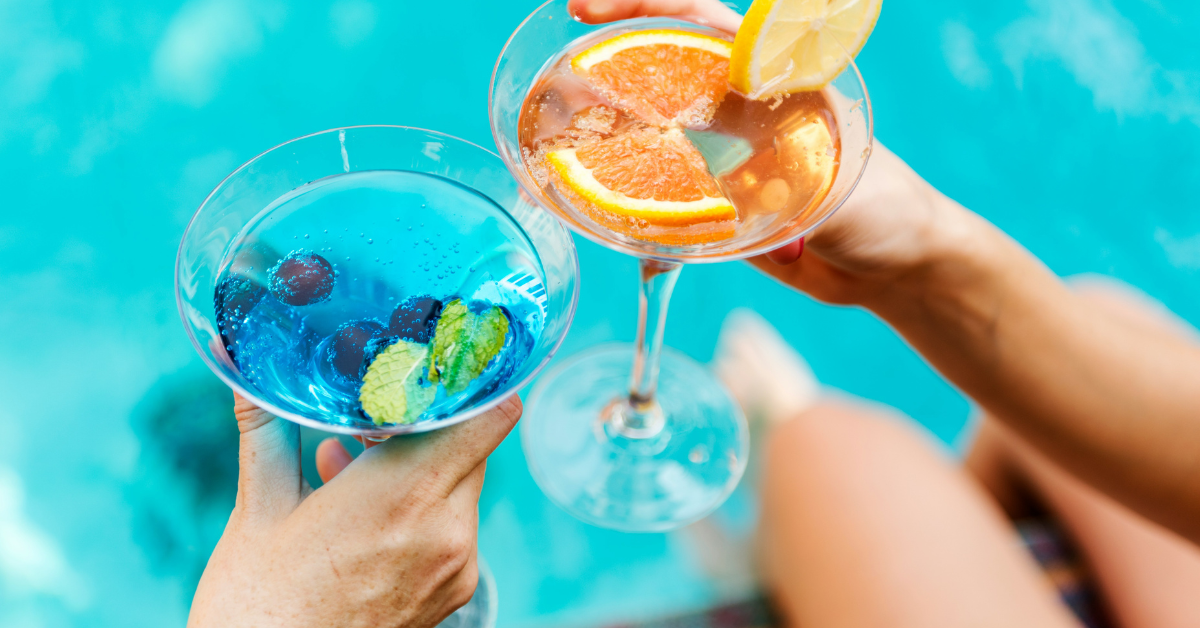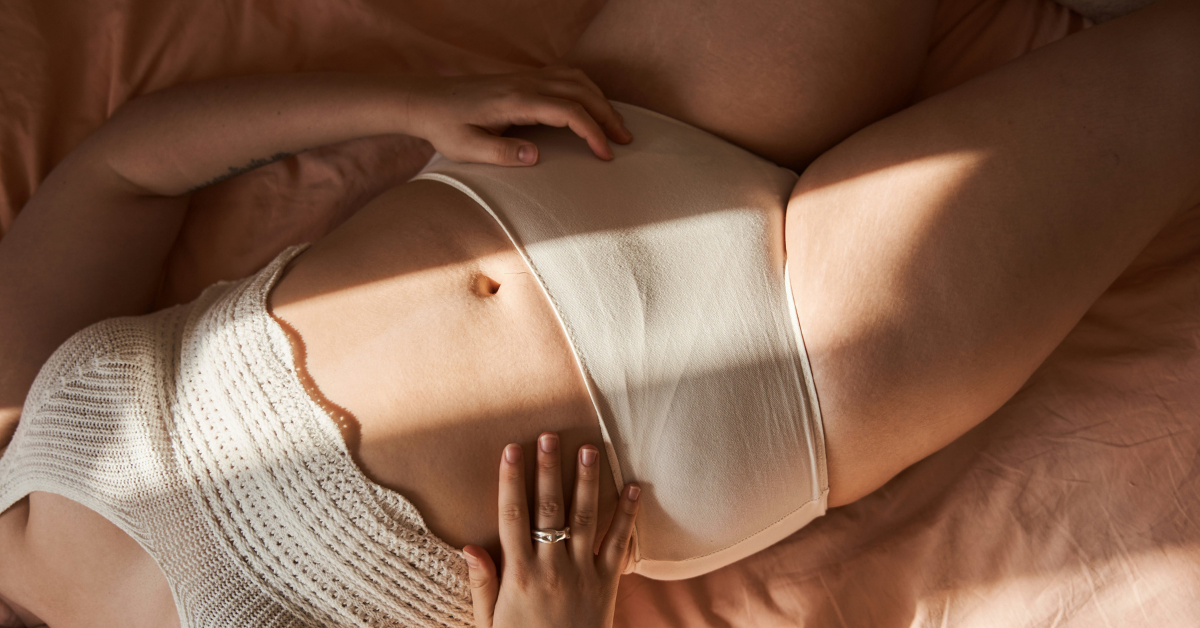by Izzy Rivera
Remember when dating was exciting, and you could easily meet a potential match at a bar — the old-school way? While that’s still possible, the digital age has largely taken over how we make human connections. Since dating apps became the norm, what was once a fun — and slightly risky — adventure of meeting strangers online has spiraled into chaos, leaving singles feeling exhausted and in a constant state of dating burnout.
It seems as if the initial thrill of dating apps — where you can unapologetically slide into someone’s DMs, have unlimited choices, instant connections, and the electrifying thought of maybe, just maybe, meeting your soulmate with a few swipes — is losing its shine.
Casey Sussman, who works in production, says her overall online dating experience has been a mess, but she remains hopeful.
“I’m not just saying that,” Casey shares. “There have been a few gems, which did not work out because I probably clung to them for dear life due to the scarcity of viable options. The idea is good but not for humans. We are not objects that you can pick from a menu.”
Although online dating is not a new concept per se, it has evolved into a strange phenomenon among people looking to find true love. Match.com, for instance, was first introduced in 1995 and now owns major dating apps such as Tinder, Hinge, and OKCupid. Despite the backlash and lawsuit Match.com received, these apps are still in high demand.
The question everyone is dying to know the answer to is: What does the future look like in online dating, or dating culture altogether? As we navigate this digital age, some people are wondering if we might be headed for a good ol’ fashioned IRL comeback — where you actually meet someone face-to-face before deciding if you like them.
Is Online Dating Slowly Declining?
Dating apps used to sell us the illusion of finding the perfect match at our fingertips while providing a fun and flirty experience with a hint of curiosity and thrill.
However, this quickly became an overwhelming task, leaving many wondering whether the convenience of online dating is worth the emotional toll of endless back-and-forth messages, disappointing IRL dates, harassing DMs, and eventually getting ghosted.
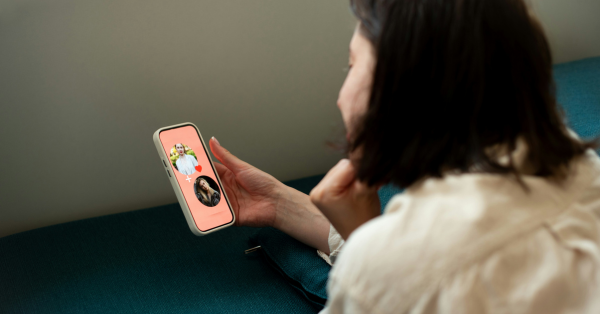
It seems as if people are putting little to no effort into online dating these days — or, on the contrary, too much effort. According to a 2023 study by the Pew Research Center, 54% of women felt overwhelmed by all the messages they received, while 64% of men felt insecure about receiving a lack of messages.
Michael Liam, a general manager at a popular restaurant in West Hollywood, thinks the problem is that there are simply too many dating apps available. This doesn’t make things better or easier, as the same people use different platforms with the same concept.
“People seem to download them all yet still struggle to set a date,” Michael says. “I would say it is declining for sure.”
Another reason for this perceived decline is that dating apps not only promote the same concept but also seem to perpetuate the same behaviors and types of interactions. You scroll, swipe, match, chat — if it even gets that far — and then… crickets.
A major issue is the swipe culture itself. We’ve adapted to treating potential partners as disposable, always searching for a mythical “perfect” person — like a unicorn — who’s just one swipe away. This “grass is always greener” mentality hasn’t fostered healthy or genuine connections. Instead, it leads to shallow interactions and missed opportunities, making it harder to find something real and lasting.
Multimedia content creator Taylor Reid also believes that online dating is declining and that dating apps reached their peak during the COVID-19 pandemic.
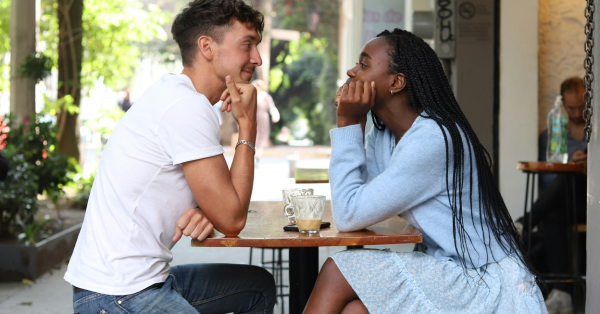
“I think that now that the world is back open, people are kind of craving more in-person connection and kind of just meeting in a more organic way versus swiping and swiping all day long,” she says. “I think that we’re just all craving something a little bit more authentic.”
Casey, however, is under the impression that dating apps aren’t going anywhere anytime soon, which will have repercussions for society on a whole other level.
“We are losing social abilities before our eyes,” she says. “I just see how our society has declined in social skills. It’s sad. We are too addicted to our phones.”
Why Many People Swipe Left on Dating Apps
It’s not just the addiction aspect for many, driven by a compulsive need to check for new matches even when they’re not really interested in dating. The reason why more and more people are ditching dating apps lies in the repetitive nature of online dating.
People report feeling like they’re interacting with the same types of individuals who aren’t interested in following through, committing, or even meeting up in real life. It’s no wonder many singles are starting to feel as though they’re stuck in a romantic hamster wheel, getting nowhere fast.
Michael thinks people go on these apps out of boredom, seeking some attention they might be missing in their day-to-day routine, especially if they’re working from home — even if they don’t want to go on an actual date. In other words, most people use these apps just to talk to someone who isn’t a friend, seeking attention or validation.
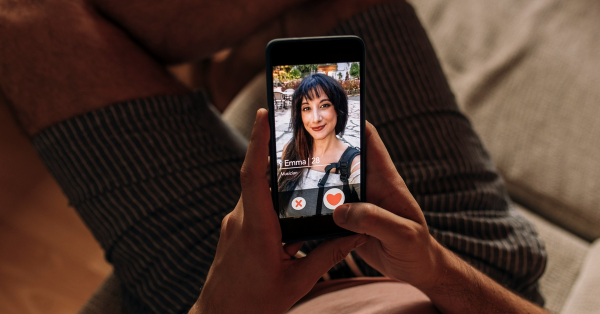
“People are quitting online dating because it is repetitive,” he says. “It seems to be the same type of people, in terms of nobody wanting to follow through and or commit.”
And when they do get a match, they might spend time chatting on the apps, but it often goes nowhere. This endless cycle of repetitive behavior across the apps — with different faces but similar outcomes — leads to dating fatigue.
Taylor, who has been on dating apps for what feels like an eternity, hasn’t been on a date with someone from Tinder or Hinge in months. Taylor also thinks that the problem might be the overwhelming number of apps to choose from.
“Maybe that’s another problem with the apps, but I do think that life does get lonely and everybody craves human connection,” she says. “It’s just a part of our species and it’s our nature.”
People seem to grow tired of dealing with those who are only looking for hookups or flings rather than a meaningful, long-term relationship. The endless back-and-forth messaging, the small talk that never leads to an actual date, and the feeling that the person on the other end is just looking for a distraction rather than a real connection — all contribute to the growing fatigue with dating apps.
Zenaida S., who is self-employed, hasn’t personally experienced dating burnout but has a theory about why many people feel that way.
“I feel dating burnout for other people is an issue because everything now is at the tip of your fingertips,” she explains. “Everybody wants instant gratification, and that’s just not possible with human interaction.”
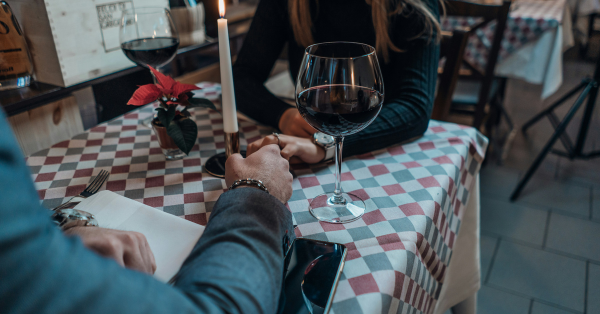
Adding to this exhaustion is not only the lack of diversity on these dating apps but also the repetitive cycle of making the same mistakes over and over. People are going through the same dramas and disappointments without learning from past experiences. It’s hard to pinpoint where the actual problem lies, but many singles who use dating apps seem to display the same type of dating behavior while expecting a different outcome.
Taylor believes it’s normal for many people on dating apps to experience dating burnout, especially after being on them for so long without any success.
“I think that it’s also natural when you are trying, attempting, dating in this new age way, using apps versus meeting organically in person,” she says. “It’s natural to have dating fatigue when you’ve been doing this for months or years or however long, and nothing has panned out.”
Professional matchmaker Nichole Rosser also agrees that many women experience dating burnout because they rush into relationships too quickly. Often, a date turns into more, but not more than just a hookup.
“People experience dating burnout because they’re not sitting with people who are intentional about finding a lifetime partner,” she explains. “A lot of people are just looking for hookups or a fling.”
Moving Beyond Burnout: Redefining Dating Culture
So, where do we go from here? As dating app burnout becomes more widespread, we could see a shift back to more traditional ways of meeting people — think face-to-face interactions and spontaneous connections.
Zenaida believes that many people — mostly women — experience more dating fatigue because they don’t prioritize their mental or emotional health. Instead, they opt for quantity over quality. The idea of keeping a ‘roster’ of potential dates might seem appealing, but it often prevents deeper connections from forming.
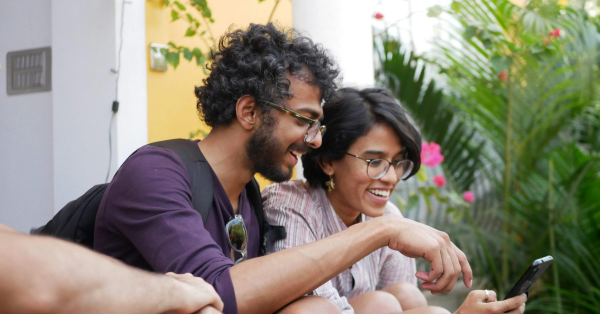
There’s this growing epidemic of people believing that they shouldn’t get attached, but how are we supposed to build something real if we never allow ourselves to truly connect?
“I think people also don’t take the time to focus on themselves and have a fulfilling life outside of dating, outside of having a partner, people really struggle with self-worth,” Zenaida adds. “So if they don’t think highly of themselves or they don’t have self-worth, then they keep repeating patterns and they keep repeating mistakes and they self-betray. So they’re getting the same results with different people.”
So, what’s the solution to dating app burnout?
While Taylor thinks it’s a common issue in the digital age, as people often lack social skills and effective communication, she doesn’t have any specific tips or tricks for combating dating burnout. However, she suggests investing in yourself in the meantime and appreciating your own company.
“I think that because people are also afraid of confrontation or being rejected as their authentic selves, it’s just really difficult to cultivate true and genuine connections,” she says. “I would just say to continue to focus on and invest in yourself and recognize that you got to pour into your own cup before you’re able to pour into somebody else’s.”
For Casey, prioritizing her well-being helps prevent dating burnout. When she feels that going on a date feels like a chore, she interprets this as a sign not to go on it.
“For me, I have just become acutely aware of so many different things that are red flags,” she adds. “There’s no better feeling when you can revert to your comfort as your safe space. And being by yourself should bring you peace.”
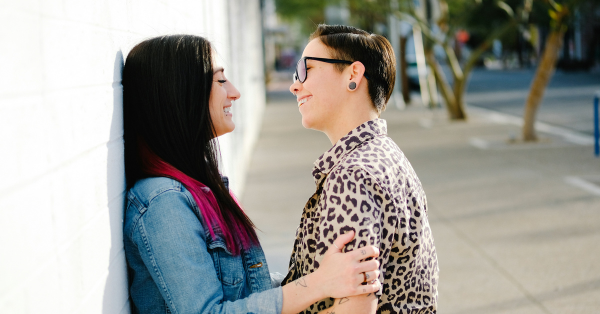
Whether it’s listening to your intuition or prioritizing yourself, there are many ways to combat dating fatigue and burnout. Michael also suggests setting boundaries, especially if you’re using more than one dating app.
“Maybe 1 hour per day,” he adds. ”Not spending all day on them because it can be very stressful.”
Another way to combat burnout is to slow down and embrace the art of patience. Instead of rushing to find “the one,” permit yourself to take things slowly and set boundaries, such as the 90-day rule, which means building an emotional connection first before getting intimate. Get to know someone without the pressure of immediate results, and you might find that the connection you’re craving starts to naturally unfold.
Another Downside of Dating Apps: Scams, Love Bombs, and Harassment
However, the issue with dating apps isn’t just about dating fatigue. It’s much more complex and somewhat sinister, especially for women. Online dating has become a platform where people use love-bombing, catfishing, and scamming tactics to exploit those looking for true love.
Picture this: You match with someone who seems perfect. They shower you with compliments, attention, and affection, making you feel like you’re living in a real-life rom-com. But before you know it, they vanish as quickly as they appeared. It’s the ultimate emotional rollercoaster, leaving you feeling confused, hurt, and completely disillusioned.
Nichole believes that the era of dating apps is slowly dying out because people — mostly women — are growing tired of the online dating experience.
“I think that the reason women get frustrated with online dating is because there aren’t many quality men online and the men who seem interesting turn out to not be real,” she explains. “Online dating has become one of the biggest scams ever, especially targeting widows and widowers.”
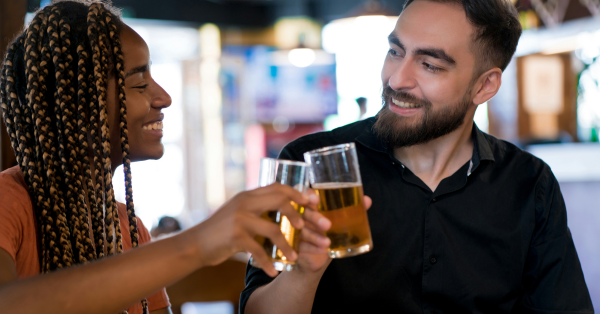
That being said, the major issue with online dating is building trust. The anonymity of these platforms allows people to present themselves in any way they choose, often leading to disappointment when reality doesn’t match the profile — also known as getting catfished or scammed. And let’s be real, the emotional toll of being duped can be just as devastating as the financial hit.
According to 2023 research published in Cyberpsychology, Behavior and Social Networking, 65.3% of people on Tinder — specifically — were married or in a serious relationship, which only adds to the skepticism and frustration many feel when navigating the dating app landscape.
The Future of Dating: Going Back to Basics
Imagine a world where singles events, speed dating, and casual social gatherings — like a run club for singles — become the new norm for finding romance. With dating app burnout reaching its peak, more people are craving those organic, spontaneous moments that just can’t be replicated through a screen.
So don’t throw in the towel just yet. Dating requires a deep understanding of psychology, polishing certain skills, and learning how to market yourself the right way. With that in mind, it might be time to rethink how you approach dating altogether.
Kelsey Wonderlin, a licensed therapist and dating coach for women, suggests that to be successful on dating apps, women who consistently meet emotionally unavailable men — those looking for a fling rather than a serious relationship — should consider editing their dating profiles to attract compatible partners while weeding out those who aren’t. This strategy helped her find her now-husband.
Her approach is to remove unnecessary details like, “Must love dogs and pizza,” and instead focus on conveying a deeper sense of who you are. Additionally, she recommends sending messages that include questions highlighting your deal breakers, helping to filter out all that noise and distraction.
See, ladies? There is hope that our future husband is out there — just hiding.
The future of dating might be about finding a balance between the convenience of technology and the authenticity of real-world connections. By prioritizing meaningful interactions over mindless swiping, and approaching dating with a mix of caution, confidence, and humor, we can move beyond burnout and rediscover the joy of dating.
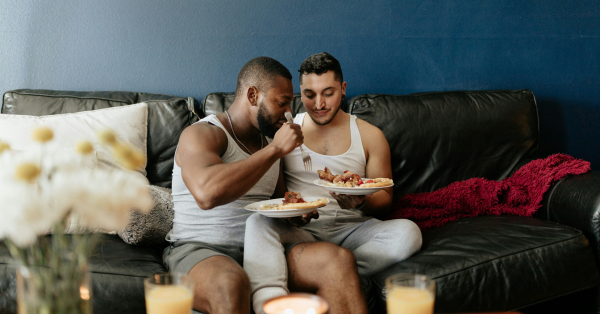
Nichole believes we’ll return to meeting people in person through dating events. However, while online dating remains an option, she suggests making a few adjustments.
“I think the future of dating will be more speed dating events so that you can make sure that the people you are talking to are real,” she says. “If you’re going to exclusively do online apps, I would recommend that you set your bar very high to weed out people who don’t meet your criteria. I would also never go meet anyone that I hadn’t FaceTimed with and personally vetted online.”
And while it’s tempting to delete every dating app on your phone, it might not be necessary. Instead, approach dating apps with a new mindset. Use them as a tool to meet people, but don’t rely on them as your only source of connection. Set boundaries — limit your swiping time, be selective about who you match with, edit your dating profile, and don’t be afraid to take breaks when you need them.
So, the next time you feel dating fatigue creeping in, remember: there’s a whole world of potential connections out there, and not all of them have to be met digitally.
And who knows, dating apps could also improve with a serious upgrade, like AI-powered matchmaking that digs deeper than just your profile pic and bio. Imagine an algorithm that knows you better than you know yourself — scary, but also kinda cool, right? Despite these fancy features, the biggest challenge might still remain: making real, lasting connections in a world where everything feels so… disposable.
